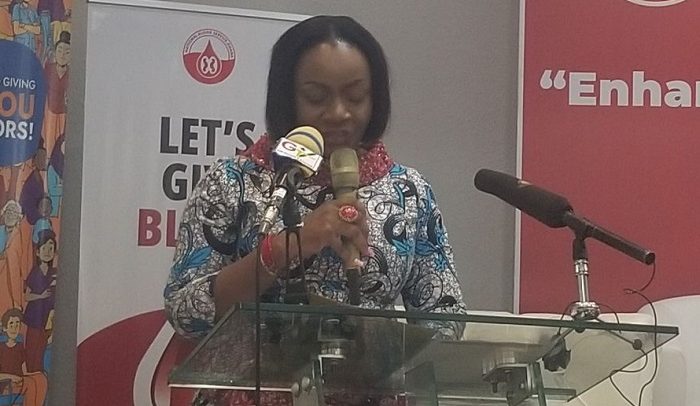Dr Shirley
The National Blood Service (NBS) convened with development partners for the first time in a strategic dialogue focused on devising long-term solutions to enhance blood donation and service delivery.
The stakeholder engagement, themed “Enhancing Blood Service Sustainability: Collaborative Strategies for Meeting Healthcare Needs,” underscores the critical need for timely access to safe and reliable blood supplies in healthcare provision.
During the dialogue, Deputy Minister for Health, Alexander Akwasi Acquah, highlighted data from a World Health Organisation report indicating an increase in the blood collection index (BCI) from 5.7 in 2021 to 5.8 in 2022.
However, this figure still falls short of the WHO’s recommended minimum collection of 10 units per 1,000 population necessary to meet fundamental transfusion requirements.
He stated that in Ghana, blood supply depends heavily on replacement donations which accounted for about 63% of blood donors in 2018.
To help bridge the gap and support Ghana’s health system to respond to current national needs for blood services, Mr. Acquah indicated that the Ministry of Health revised the National Blood Policy to provide strategic direction as a way of achieving global targets such as Universal Health Coverage (UHC) and the 2030 sustainable goals.
He said the revised National Blood Policy is further inspired by the Directive Principles of State Policy as enshrined in the 1992 Constitution of Ghana and is also aligned to the Coordinated Programme of Economic and Social Development Policies 2017-2024, the overarching health sector policy, the National Health Policy (NHP, 2020), Ghana’s Universal Health Coverage Roadmap and other health sector policy frameworks.
Despite some progress made, Mr. Acquah acknowledged existing challenges faced by the blood service, including inadequate funding, limited infrastructure and equipment, insufficient trained personnel, high turnover rates of healthcare workers, and limited public awareness and education.
The Chief Executive Officer of National Blood Service, Dr. Shirley Owusu Ofori on his part added that stakeholder engagement provides a platform to provoke discussions targeted at identifying actionable strategies aimed at ensuring the sustainability of blood services to meet healthcare needs effectively.
She said although the service has made gains over the years, the dialogue allows highlighting some of the key issues and the strategic importance of safe blood transfusion in achieving universal health coverage in Ghana.
Dr. Shirley stressed that achieving sustainability in blood services necessitates collaborative efforts from government, healthcare providers, private sector partners, non-profit organisations, and individual citizens to build a resilient blood service that caters for the healthcare needs of all Ghanaians.
BY Prince Fiifi Yorke

